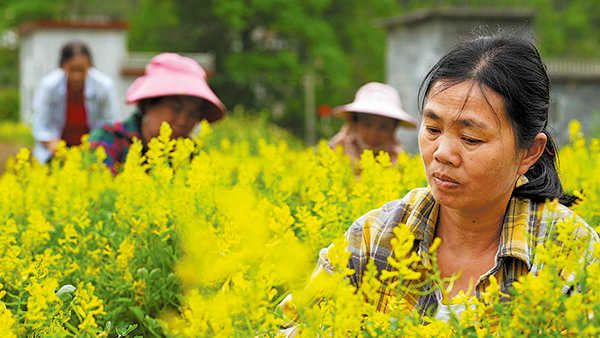TCM plantations are herbal remedy for communities
Innovative health teas not only benefit patients, but also the villages and people where the ingredients are planted, Yang Feiyue reports.


It is expanding into wellness tourism by creatively blending local agricultural products such as black glutinous rice and chestnuts with traditional medicinal herbs. The county has developed over 200 medicinal dishes and seven wellness teas, achieving a total output value exceeding 10 million yuan, Pan says.
The county has welcomed approximately 867,100 visitors, generating 940.8 million yuan in tourism revenue in the first quarter, according to county authorities.
"The environment here is ideal, with abundant mountains and dense forests. The climate is favorable, often shrouded in mist, creating natural conditions remarkably similar to the wild. As a result, the medicinal herbs we cultivate grow in an environment similar to their natural habitat," explains Tang, the TCM hall founder, of his decision to build TCM plantations in the county.
To date, every species the plantation grows has a guaranteed demand from a partnered company, and farmers' incomes are secured through contract pricing, says Tang.
"Once our base matures, we aim to expand this model to other areas, encouraging farmers to utilize their idle forest lands for medicinal herb cultivation and supporting rural vitalization," Tang says.
Tang expects production and sales will continue to grow as more well-known TCM brands, like Tongrentang, will come on board.



































